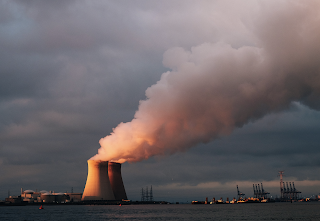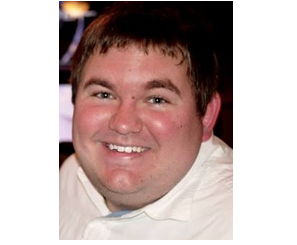This article was originally posted on the Daily Illini website on May 7, 2014.
by Brittany Nadler
Her name was Eleni, and she was just a toddler when she and her siblings fled Turkey barefoot with everything they could carry during the forced migration of the early 1920s.
 |
Esma — great grandmother of Sebnem Ozkan,
outreach coordinator at the European Union Center —
was a Turkish woman who was forced
to flee Greece with her five children. |
With her brother at her side, disguised as a girl so the Turks wouldn’t take him, they set off toward boats that were sent to help evacuate her coastline town, Smyrna, and headed to their new life in Greece.
“My grandfather — her husband — was also from there, and he was about 11 when this was happening,” said Hellen McDonald, clinical assistant professor in Social Work. “Her mother dressed him up as a monk so the Turks would not keep him.”
They arrived at Pirea, the main port of Greece and began their new life in a country that saw them as dirty and not Greek. Returning home, where they were also viewed as outsiders, wasn’t an option.
She married at 16 and moved to a makeshift home that the community built for all of the migrants.
“The community built these huge apartment complexes for them and that’s where a lot of the refugees — they don’t like to be called refugees — a lot of the individuals that came from Smyrna settled in,” McDonald said.
She lived in a town called Peristeri until her death in 1999. In English, Peristeri means dove, the symbol for peace.
***
The Greek-Turkish exchange, German-Polish exchange, Partition of India and Cyprus Crisis are all events of forced migration in the 20th century, when millions of people were forced to leave their homelands, largely never returning.
The documentary “Twice a Stranger” combines video testimonies, rare film archives and photos from survivors to bring their stories to light. The film will be shown by Modern Greek Studies at 6 p.m. on May 8 in the Lucy Ellis Lounge of the Foreign Language Building.
Dr. Stefanos Katsikas, director of Modern Greek Studies, will begin the screening with a short introduction to provide background on the historical events being highlighted.
“Twice a Stranger” premiered at an exhibition in the Benaki Museum in Athens and was highly successful, Katsikas said. He had to receive permission from the museum to show the documentary, making this the first time it will be screened in the Midwest.
 |
Esma and her family migrated to Sakarya, Turkey,
where they ran an olive business to support themselves |
A conflict between Greece and the Ottoman Empire in 1919 led to a war over control of the region around Smyrna. The Greek army was granted a mandate after World War I to exercise control of the region for five years followed by a referendum which would determine the future status of the area, Katsikas said.
Greek authorities took advantage of a strong presence of ethnic Greeks in the area. The outcome of the referendum would be in Greece’s favor and the region would become Greek territory. This was not seen favorably by Turks who wanted this region to be part of the Ottoman Empire or any succeeding Turkish nation state.
Greece lost the war, and its troops withdrew, which sparked a negotiation between the two sides over the territorial status of Greece and Turkey, ending the signing of the Lausanne Peace Treaty. Part of this treaty was a protocol which provided for the compulsory exchange of populations so that all Muslims living in Greece moved to Turkey and all Greek-Orthodox people in Turkey would head to Greece. It was believed that a population exchange would guarantee peace and security between the two states.
A conflict between Greece and the Ottoman Empire in 1919 led to a war over occupying territory in Turkey. While Greece was granted a mandate after World War I to occupy the region, Greek authorities in Smyrna were working on a five-year referendum that would determine the fate of the same area.
Greece lost the war and its troops were forced to leave, which sparked a negotiation: the two states would exchange populations so that all Muslims living in Greece moved to Turkey and all Greek-Orthodox people in Turkey would head to Greece.
“In order to be a Greek, you need to speak a Greek language and be Greek-Orthodox. In Turkey, the established view was to be a Turk, you had to speak Turkish but also be a Muslim,” Katsikas said. “This resulted in one of the biggest humanitarian crises in the beginning of the 20th century – 1.5 million Greek-Orthodox and half a million Muslims leaving their homelands.”
Katsikas said one of the problems with this was many Muslims couldn’t speak Turkish and many of the Greek-Orthodox couldn’t speak Greek, causing them to be viewed as outcasts.
Today, McDonald’s extended family still lives in the suburbs of Athens. Eleni and her husband were able to move out after buying land and building a new home.
“My grandfather was able to put aside money - he did all sorts of jobs that weren’t originally accepted. They were considered dirty and like not real Greeks,” McDonald said. “They really struggled with assimilating, but through the years, I think they proved them wrong.”
McDonald remembers her grandmother as quiet and not very talkative, but she was strong in her values.
“Now that I’m in social work, I have a better understanding of why,” she said. “It might have been too
traumatic to talk about it.”
 |
“[Esma] always remembered Greece as a nice place. She always
talked about her neighbors there, both Turks and Greeks, and she
would tell stories about how everybody got along really well.” |
On the other side of the conflict stood Esma, a Turkish woman who was forced to flee Greece with her five children. The hardships they encountered took the life of one of her twins. Sebnem Ozkan, outreach coordinator at the European Union Center, said her great-grandmother remembered packing all of their belongings and taking the trip to Turkey.
“She always remembered Greece as a nice place,” Ozkan said. “She always talked about her neighbors there, both Turks and Greeks, and she would tell stories about how everybody got along really well, there wasn’t really tension or any fighting ... it was the politics and the government who were really messing up things.”
Esma and her family migrated to Sakarya, Turkey, where they ran an olive business to support themselves. Economic hardship after migrating was common because not all belongings could be taken with them, Ozkan said.
The migration didn’t happen in a single day. Political tensions had been brewing and the people knew they would have to leave, but they kept a separate identity, Ozkan said, although that identity has been withering away with each generation.
Like Eleni, Esma and her family also had trouble assimilating and were not welcomed. Even though they spoke Turkish, a difference in customs made them look suspicious. She never returned home but also never expressed the desire to.
“She was still sharp,” Ozkan said. “If somebody told her there were people from this town in Greece from Vodena where she was from, she would insist to go and find them. She was still very committed to her birthplace and she just kept talking about it until she died.”
Esma lived to be more than 100 years old despite facing so many challenges in life, including losing her husband in the war.
“It is quite a lot to deal with, but she never complained,” Ozkan said. “She just thought, ‘This is life,’ and you do the best you can do under the circumstances and you just move forward, stay positive, and I think that was one of the reasons why she lived such a long life.”
Brittney can be reached at banadle2@dailyillini.com.
Photos courtesy of Sebnem Ozkan.

Modern Greek Studies to Screen ‘Twice a Stranger’ Documentary


















